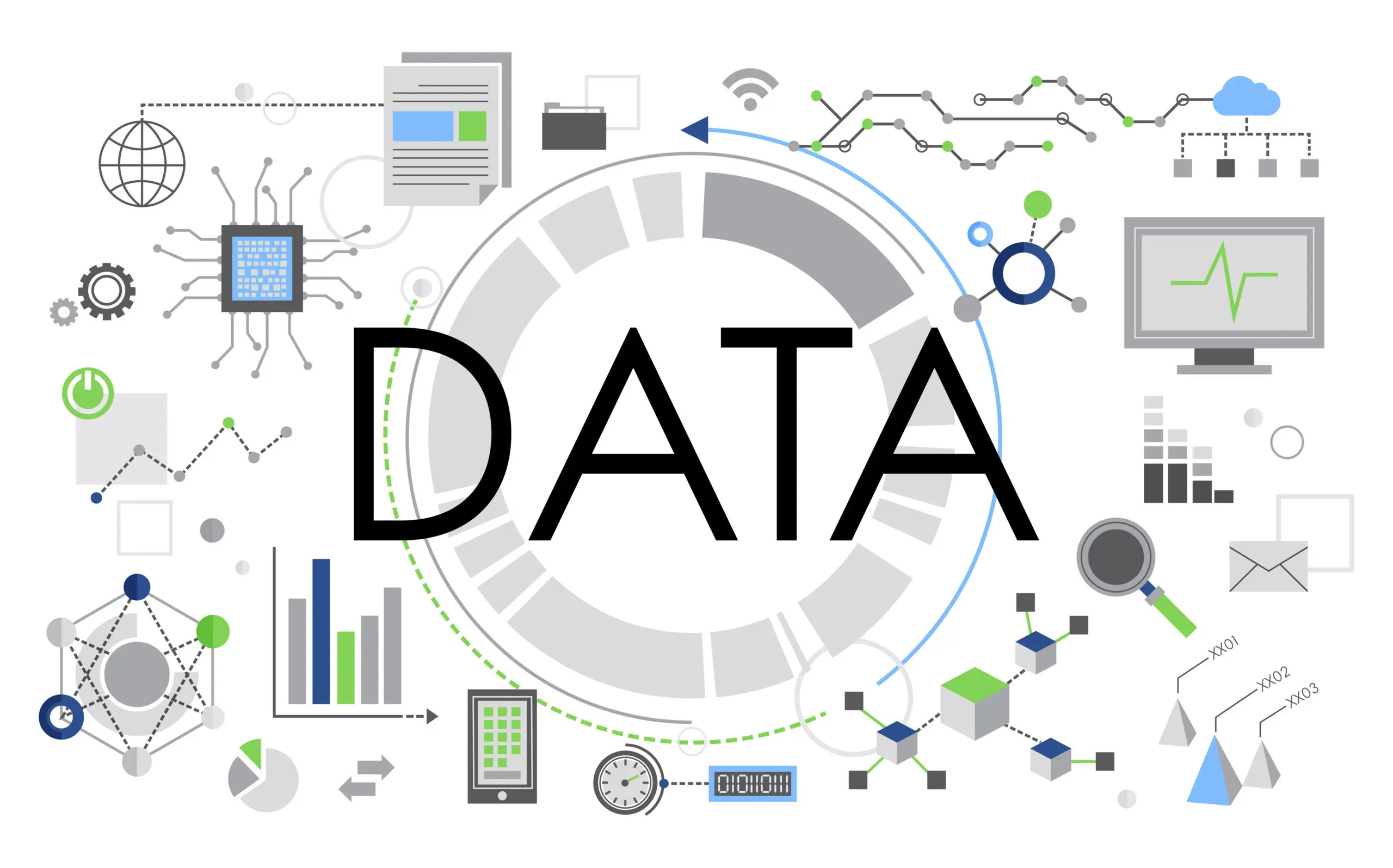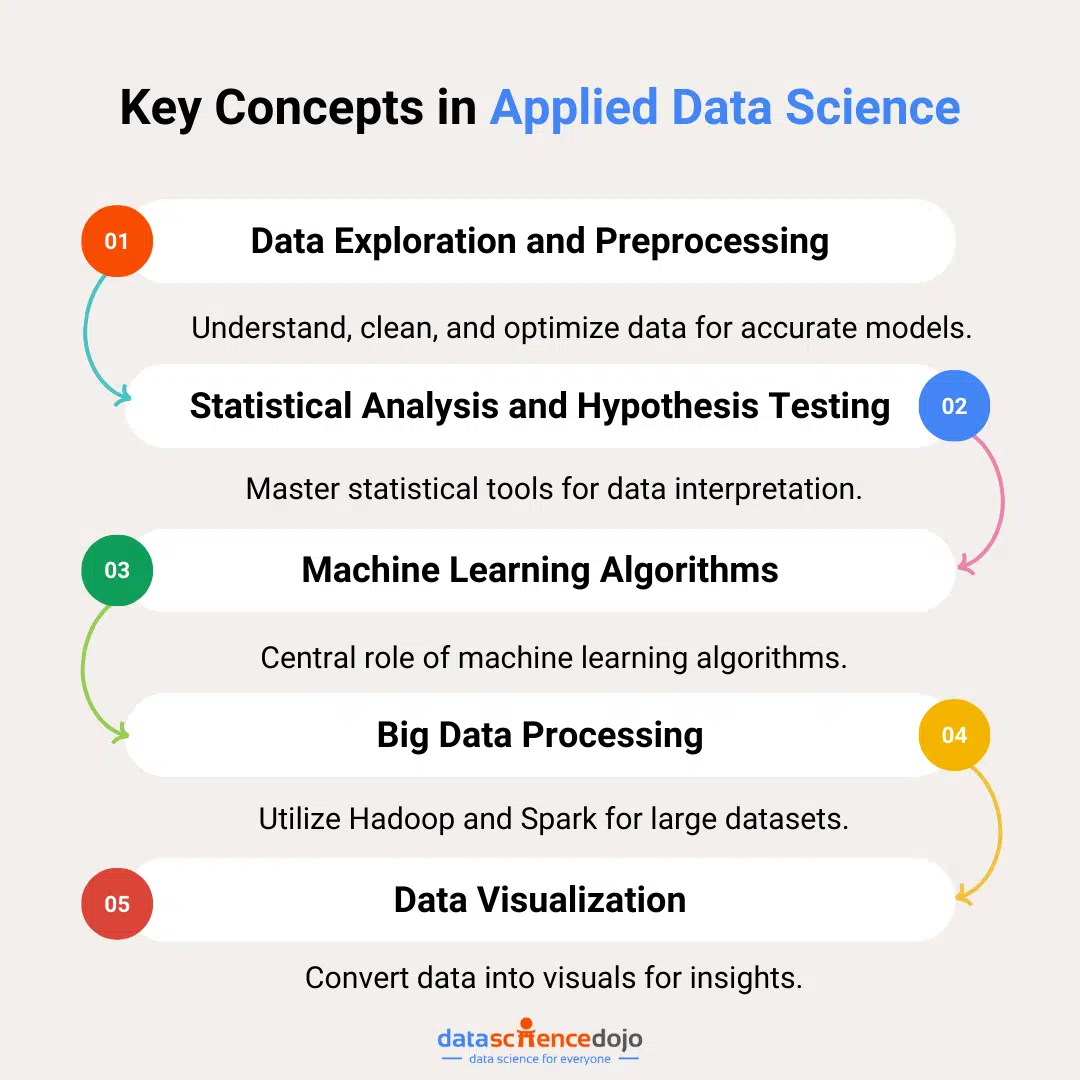The crux of any business operation lies in the judicious interpretation of data, extracting meaningful insights, and implementing strategic actions based on these insights. In the modern digital era, this particular area has evolved to give rise to a discipline known as Data Science.
Data Science offers a comprehensive and systematic approach to extracting actionable insights from complex and unstructured data. It is at the forefront of artificial intelligence, driving the decision-making process of businesses, governments, and organizations worldwide.

However, Applied Data Science, a subset of Data Science, offers a more practical and industry-specific approach. It directly focuses on implementing scientific methods and algorithms to solve real-world business problems and is a key player in transforming raw data into significant and actionable business insights.
But what are the key concepts and methodologies involved in Applied Data Science? Let’s dive deep to unravel these facets.
Key Concepts of Applied Data Science
1. Data Exploration and Preprocessing
An essential aspect of the Applied Data Science journey begins with data exploration and preprocessing. This stage involves understanding the data’s nature, cleaning the data by dealing with missing values and outliers, and transforming it to ensure its readiness for further processing. The preprocessing phase helps to improve the accuracy and efficiency of the models developed in the later stages.
2. Statistical Analysis and Hypothesis Testing
Statistical methods provide powerful tools for understanding data. An Applied Data Scientist must have a solid understanding of statistics to interpret data correctly. Hypothesis testing, correlation, and regression analysis, and distribution analysis are some of the essential statistical tools that data scientists use.
3. Machine Learning Algorithms
Machine learning forms the core of Applied Data Science. It leverages algorithms to parse data, learn from it, and make predictions or decisions without being explicitly programmed. From decision trees and neural networks to regression models and clustering algorithms, a variety of techniques come under the umbrella of machine learning.
4. Big Data Processing
With the increasing volume of data, big data technologies have become indispensable for Applied Data Science. Technologies like Hadoop and Spark enable the processing and analysis of massive datasets in a distributed and parallel manner.
5. Data Visualization
Data visualization is the artwork of illustrating complicated facts in a graphical or pictorial format. This makes the data easier to understand and allows business stakeholders to identify patterns and trends that might go unnoticed in text-based data.
Read more –> 33 ways to stunning data visualization
Methodologies of Applied Data Science
1. CRISP-DM Methodology
Cross-Industry Standard Process for Data Mining (CRISP-DM) is a commonly used methodology in Applied Data Science. It consists of six phases: business understanding, data understanding, data preparation, modeling, evaluation, and deployment.
2. OSEMN Framework
The OSEMN (Obtain, Scrub, Explore, Model, and Interpret) framework provides another structured approach to tackling data science problems. It ensures a streamlined workflow, from acquiring data to presenting insights.
3. Agile Methodology
The Agile methodology emphasizes iterative progress, collaboration, and responsiveness to change. Its implementation in Applied Data Science allows data science teams to adapt swiftly to changing requirements and deliver results in incremental phases.
As the world evolves increasingly data-driven, the demand for professional Applied Data Scientists is rising. A well-rounded Applied Data Science Program can equip you with the necessary knowledge and hands-on experience to excel in this rapidly evolving field.
It can help you understand these concepts and methodologies in-depth and provide an opportunity to work on real-world data science projects.
Furthermore, it is essential to consistently acquire knowledge and stay up-to-date with the most recent developments in the industry. Continuous Data Science Training can offer a fantastic opportunity to continuously enhance your abilities and remain pertinent in the employment market.
These programs can provide a more profound understanding of both the theoretical and applied aspects of Data Science and its diverse fields.
Advancements in Applied Data Science
Applied Data Science is not a static field. It constantly evolves to incorporate new technologies and methodologies. In recent years, we’ve seen several advancements that have significantly impacted the discipline.
1. Deep Learning
Deep learning, a subset of machine learning, has been a game-changer in lots of industries. It is a way of implementing and training neural networks that are inspired by the human brain’s workings.
These neural networks can process large amounts of data and identify patterns and correlations. In Applied Data Science, deep learning has been a critical factor in advancing complex tasks like natural language processing, image recognition, and recommendation systems.
2. Automated Machine Learning (AutoML)
AutoML is an exciting advancement in the field of Applied Data Science. It refers to the automated process of applying machine learning to real-world problems.
AutoML covers the complete pipeline from raw data to deployable models, automating data pre-processing, feature engineering, model selection, and hyperparameter tuning. This significantly reduces the time and effort required by data scientists and also democratizes machine learning by making it accessible to non-experts.
3. Reinforcement Learning
Reinforcement learning, an alternative type of machine learning, centers on determining how an agent should act within an environment in order to optimize a cumulative reward. This method is applied in diverse fields, ranging from gaming and robotics to recommendation systems and advertising.
The agent acquires the ability to accomplish a goal in an uncertain, possibly intricate environment.
To stay abreast of these progressions and consistently enhance your expertise, engaging in an ongoing Data Science Course is essential. Such a course can offer a greater profound knowledge of both the theoretical and practical aspects of Data Science and its growing domains.
Conclusion: Future of Applied Data Science
Applied Data Science has drastically transformed the way businesses operate and make decisions. With advancements in technologies and methodologies, the field continues to push the boundaries of what is possible with data.
However, mastering Applied Data Science requires a systematic understanding of its key concepts and methodologies. Enrolling in an Applied Data Science Program can help you comprehend these in-depth and provide hands-on experience with real-world data science projects.
The role of Applied Data Science is only set to expand in the future. It will retain to revolutionize sectors like finance, healthcare, and entertainment, transportation, to name a few.
In this light, gaining proficiency in Applied Data Science can pave the way for rewarding and impactful career opportunities. As we increasingly rely on data to drive our decisions, the significance of Applied Data Science will only continue to grow.
To wrap up, Applied Data Science is a perfect blend of technology, mathematics, and business insight, driving innovation and growth. It offers a promising avenue for individuals looking to make a difference with data. It’s an exciting time to delve into Applied Data Science – a field where curiosity meets technology and data to shape the future.
Written by Erika Balla





